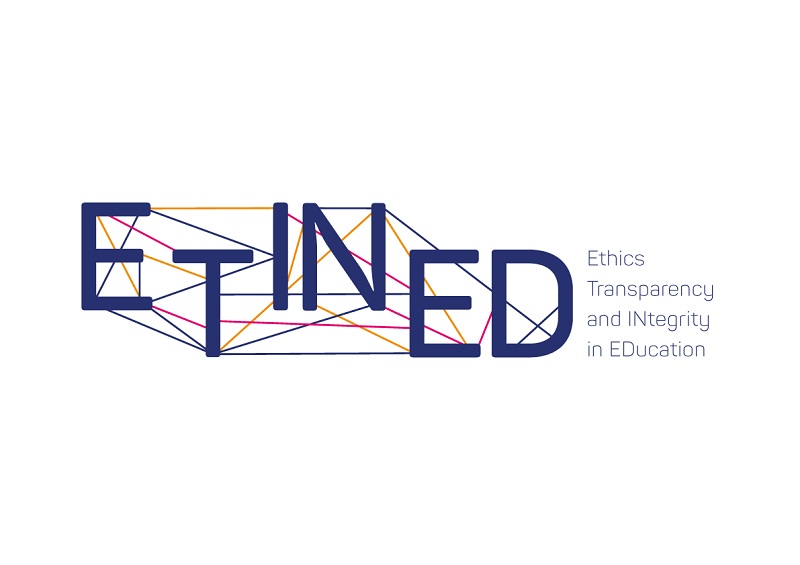2nd ETINED Plenary Session (2018)

The meeting gave an opportunity to exchange information on ethics, transparency and integrity in education and progress on the achievements expected from the Platform.
Following the conclusions and priorities earlier defined, the main themes of discussion were:
- Combatting education fraud;
- Promoting integrity in higher education;
- Ensuring the effective implementation of codes of ethics for the teaching profession.
A specific focus was put on the roles and responsibilities of public authorities in promoting quality education exempt from corruption and fraud. Examples of successful policies related to ethics in education were presented, as well as tailored assistance given through mechanisms of co-operation and capacity-building in the field developed by the Council of Europe.
Opening Session
Following the welcome address by the Director General for Democracy of the Council of Europe, a presentation introduced the Reference Framework of Competences for Democratic Culture (RFCDC) developed by the Council of Europe and showed how the RFCDC can be useful in promoting academic integrity in higher education.
Plenary Session 1 – Ethics in Education
The discussions in the first Plenary Session focused on the promotion of ethics in education and presented an update of the work of the ETINED Working Group on Ethics in Education.
Following the discussions at the 2016 Plenary Session and the conclusions of the background study on Codes of conduct for teachers in Europe, a draft policy document on “Promoting the development of codes of ethics in the teaching profession” was developed by the Working Group. The document concerns the measures to be promoted by public authorities in order to foster the development of codes of ethics.
A study on the “Review of the Code of Professionalism and Conduct by the General Teaching Council for Scotland” was also presented as a way to increase knowledge about good practices in the field.
More detailed discussions under this first main theme continued in Working Group A “Ethics in Education” that met in the afternoon of 15 February 2018. Two case-studies were presented which gave concrete examples of good practices from Sweden, the UK and the USA.
Plenary Session 2 – Education fraud
The discussions in the second plenary session focused on how to fight education fraud and discussed possible means to address this issue through a coordinated and cross-border approach. An update of the work of the ETINED Working Group on Education Fraud was presented, proposing an integrated policy approach to address issues like contract cheating, fraudulent credentials and plagiarism.
The discussion examined the question of the need for a specific policy framework document on the subject, proposing and integrated policy approach on prevention, participation, protection, prosecution and cross-border cooperation.
A presentation on the role of accreditation and quality assurance bodies and their responses to corruption and academic integrity breaches in higher education was provided on the basis of research funded by the CHEA International Quality Group.
The discussions under this second main theme continued in more detail in Working Group B “Fraud in Education” that met in the afternoon of 15 February 2018. Two case-studies were presented which gave concrete examples of good practices from Armenia and the United Kingdom.
Plenary Session 3 – Promoting a culture of academic integrity
In Plenary Session 3, participants were presented with the conclusions of the study on academic integrity in higher education in six countries of South-East Europe: Albania, Bosnia and Herzegovina, Croatia, Montenegro, Serbia and “the former Yugoslav Republic of Macedonia”.
Through on-the-spot interviews with teachers and students, questionnaires, surveys and integrity assessment, the study gives an overview of policies and practices used in several institutions from the region. The results provide recommendations, good-practice examples and guidelines for policy-makers and education professionals with a specific focus on plagiarism, academic dishonesty, examination cheating and ghost-writing.
The work of the Division on Cooperation and Capacity-building in the field of strengthening integrity and combatting corruption in higher education was also presented, with examples from Armenia and from the EU/CoE Horizontal Facility Projects. A presentation of current issues on academic integrity in Serbia was also provided.
ETINED delegates welcomed the transferability of such good practices examples to other national situations.
Closing session
The session drew conclusions from the discussions held in Plenary and Working Group Sessions and defined strategic orientations for the next biennium for the work of the ETINED Platform, in line with the Council of Europe priorities.




